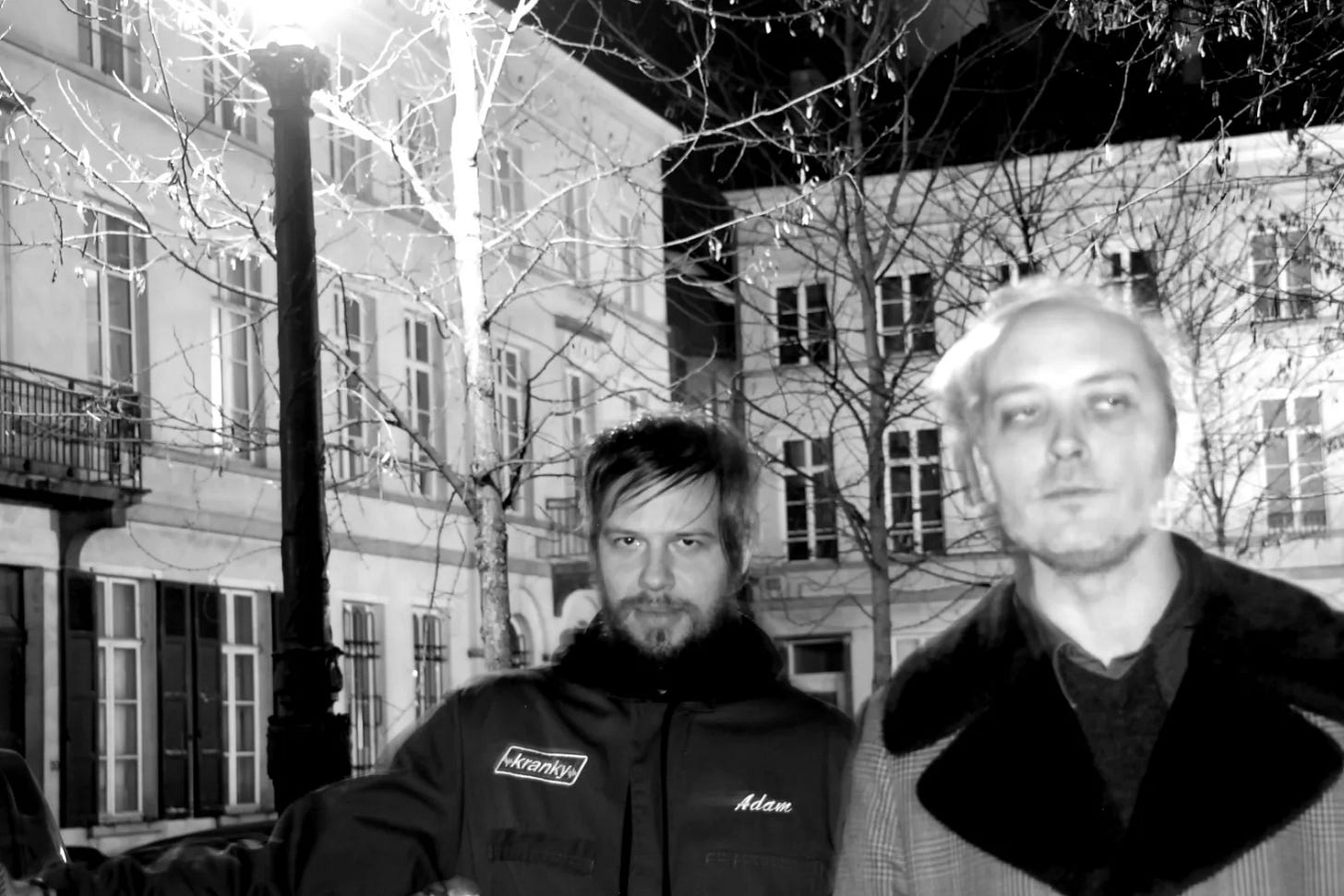An interview with Stars of the Lid's Brian McBride
A chat with the drone musician and USC debate coach
Yesterday, on Sunday, August 26, 2023, came the news of Brian McBride’s early death. He was 53. Many say his project Stars of the Lid made some of the most significant and beautiful ambient music since Brian Eno. I don’t make ‘best of’ lists but I would not argue with those people. I am posting this interview I did with Brian 15 years ago in tribute. For more ambient music, check out the ambient reservoir I posted in March of this year, or this vaguely Star Wars inspired mix from March 2022.
Stars of the Lid are a duo of Texas exiles: Adam Wiltize, who resides in Belgium, and Brian McBride, who is stationed in L.A. In 15 years of existence, they’ve released six full-length albums of extended ambient drones, their sound has grown increasingly lush, and their cult following has steadily expanded. Recently, Ivo Watts-Russell, founder of the famously atmospheric British label 4AD, said, “I simply feel that they are making the most important music of the 21st century” — an overstatement, for sure, but indicative of the deep feeling SOTL arouse in those paying attention.
L.A. WEEKLY: Since 1993, you and Adam have developing what is, let’s be frank, a fairly esoteric sound. How did the project begin?
BRIAN McBRIDE: We both spent 1988 to 1998 in Austin, Texas. We met each other through school and were hanging out all the time — basically us against the world of Austin. There were things neither of us could relate to at all. The city was still dominated by this boogie rock, Stevie Ray Vaughan mentality, even though it also had this tradition of psychedelic music in the form of Roky Erikson and the 13th Floor Elevators. What we did was a reaction to the blues-rock phenomenon. We wanted to make long music that was deeply afraid of wank. We had our bicycles and basically got fucked up together all the time. I remember watching episodes of Twin Peaks and jamming.
L.A. Weekly: Has your following grown?
BM: That’s fair to say. At one point, this Web site Metacritic [a site that aggregates reviews from dozens of sources -ed.] rated our new record, And Their Refinement of the Decline, as the fourth-best-reviewed album of 2007, tied with Radiohead’s In Rainbows. People have been very positive about this record, and it’s selling quite a bit. To be perfectly honest, I don’t know why, though it did take us five years to pull together a new album this time. We had been releasing one a year, and we collectively made a decision to change the pace of our release schedule. To us, too many artists are caught up in this political economy of keeping in the spotlight — like if you don’t put something out every year, people will forget you. But Wagner took 10 years to put out the Rhinegold.
“…neither of us are entertainers per se. Both of us still have a desire to put out a record that is tear-jerkingly beautiful, though, and I don’t think we’ve come to that point, so that’s our inspiration.” — Brian McBride
L.A. Weekly: Point being that you’re not exactly a pop band? It would be incorrect to call your music experimental or electronic, though.
BM: To me, experimental music is reminiscent of things I find annoying. It’s like, “Let’s open up a tape machine and see what crazy sounds we can get out of it.” Some musicians like that. You put an ice cube on a vinyl LP and record the sound as it melts.
We do believe in new sounds, but in terms of pairing a guitar with a trumpet and seeing what happens when you merge them together and they speak as one instrument. We’re both fans of modern, minimalist classical music — composers like Harold Budd, Arvo Pärt, Zbigniew Preisner, Gavin Bryers. I’m a huge Ennio Morricone fan. I love finding old ’60s and ’70s soundtracks like Francis Lai’s music for Claude Lelouch’s film A Man and a Woman.
L.A. Weekly: Unlike those artists, however, you’re not traditional composers. Are there specific challenges you deal with when working with outside musicians?
BM: For starters, they have to know what they’re getting into. We’d never bring someone on tour that isn’t familiar with us, though it helps if they’re not fans. Part of me thinks that if you’re a fan of Stars of the Lid and you’re a string player, you may not be technically competent. [Laughs.] It’s difficult music to play. The slower you go, the harder it is to pull off tone. Strings will go out of tune. You need very steady hands, especially with the violin. There’s a lot of long notes to hold, and it can be physically taxing. The previous woman that played cello with us on tour, 10 days into it, her back went out. The glacial pace requires a different kind of attention. It’s a lot easier playing fast because you can hide your mistakes. Any string player will tell you that. We often have to remind people to rein in the tempo.
L.A. Weekly: Talk about perseverance. I’ll assume the career prospects for this music aren’t fantastic.
BM: We typically tour after a record is released, but neither of us are entertainers per se. Both of us still have a desire to put out a record that is tear-jerkingly beautiful, though, and I don’t think we’ve come to that point, so that’s our inspiration. Ultimately, though, we do it because it’s a way for us to maintain our sanity and decompress from other things going on in life.
I still teach at USC as the assistant director of debate. There are a bunch of schools that have college debate programs, either parliamentary-style or this form called policy debate. USC does policy debate. We have two-person teams who will go to tournaments all over the country and debate a guideline topic they’ve been preparing for since the summer. You don’t know how they’ll interpret the resolution until you arrive. This year’s topic is about constructive engagement in the Middle East, so a resolution might be, Should we give Iran a security guarantee so they’ll not pursue enriched uranium? Is there a way to engage the Palestine Authority to resolve the issue between Fatah and Hamas? The amount of research a college debater does is the amount one would do to write a Ph.D.
Until five years ago, I didn’t realize my job and my music were clearly polar opposites. Policy debate is very quick. People speak rapidly. A typical debater’s soundtrack is beat-centric and fast, to keep their adrenaline pumping. The idea of listening to slow music is a little alien. But my job is part of the reason I need to slow down with Stars of the Lid. It’s how I make sense of the world. I’d hope that one prepares me for the other. Debate is very vocal, very fast. It rarely stops and stares. The music I make is the exact opposite. So, I’m either a complete schizophrenic or really balanced.
Originally published in LA Weekly on April 10, 2008.




